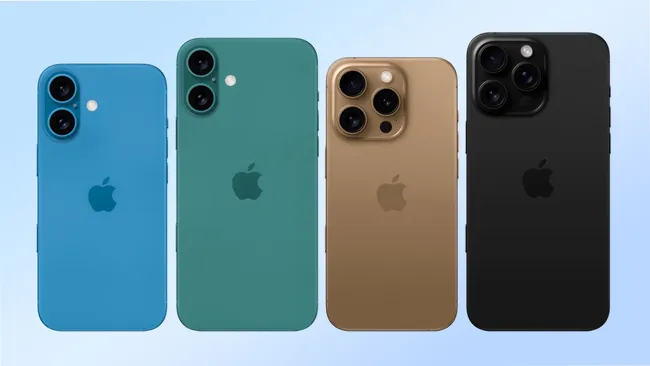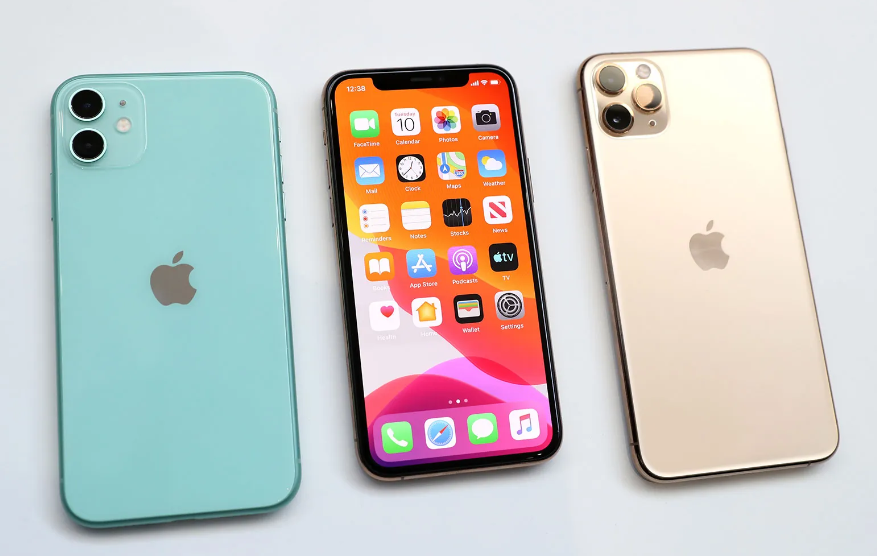
If you’re just joining the Apple family, it’s only natural to ask: “How long do iPhones last?” Or perhaps you’ve been using the same iPhone for the last few years, and it’s still doing just fine. You may have also noticed signs of ageing, like a lagging battery, and wondered how long iPhone batteries last.
With Apple releasing a new iPhone yearly, it’s only expected for users to question the lifespan of their current model before needing an upgrade. From software updates to battery life and general performance, there are many factors to consider when determining the longevity of your iPhone.
The good news? iPhones are renowned for their durability and reliability. Because Apple uses high-quality components, well-optimized iOS, and frequently updates software, its devices are known to survive longer than the average smartphone. This guide will help you understand how long iPhones and their batteries last, and how you can maximize their lifespan.
Table of Contents
How Long Do iPhones Last?

Excluding any accidents or falls that could lead to wear and tear, iPhones last long enough until you’re tired of using them. We’ll attribute this to easy replacement for parts, a broad selection of cases, superior build quality, and features like ongoing software support for security updates, app developer support, etc.
iPhones arguably outlive some Android phones. Because of this durability, they have an advantage over their Android counterparts in the iPhone versus Android debate. Every year, Apple releases new iPhone models, versions, and colors. And iPhone users usually get excited about the latest iPhone at this time.
This gives the impression that iPhone users are always purchasing new phones. But in truth, you and many others won’t just switch from their good phone to a new one simply because it’s the newest release (and pricey of course). The typical average lifespan of an iPhone is three years. At this point, the battery performance starts deteriorating and no longer serves as usual.
This is the average timeframe before an iPhone user considers upgrading to a new phone. And the most common reason for this is the degrading battery. On the other hand, some users would prefer to replace their iPhone battery and keep using the phone for 4-5 years.
At the time of purchase, if you already plan to use the phone for such a long time, you can get the AppleCare Plus package for subsidized battery replacement costs. Though rare, I’ve seen individuals using the same iPhone for the last 7-8 years.
Since you know that iPhones can last this long, it’s important to know that their parts are expensive and can’t be repaired easily. Generally, an iPhone’s lifespan depends on how well you use it (excluding the battery aspect).
How Long Do iPhone Batteries Last?
Similar to how long iPhones last, iPhone batteries last an average of three years. Afterward, you’ll need a replacement. In the first year, the battery should work efficiently without hiccups. The same thing applies to the second year but you’ll need to change it in the third year. However, your iPhone will still be in good condition.
Getting a battery replacement in the third year gives your phone a fresh feel. You can continue using it for the next couple of years. Once you’ve used it for up to four years, an iPhone upgrade will be ideal instead of another battery replacement.
Read this article: How To Show Battery Percentage On iPhone 12 | Easy Guide
How Long Should You Use An iPhone?
No doubt, iPhones last an average of 3 years but there’s no universal answer to this question. It’s simple — use your iPhone for as long as you want (as long as it serves your needs). But you’ll probably need to change the battery once it reaches the 3-year average lifespan.
Now, you have to be cautious because using an incorrect battery can cause your phone more harm than good. So, we recommend getting a replacement from an authorized Apple repair center. You can expect your iPhone’s lifespan to extend by an additional year or two.
With Apple’s regular support, feature upgrades, and security updates, your iPhone can always feel new. Apple provides software support for at least five years. It’s got you covered if you aren’t ready to upgrade your phone any time soon.
Sometimes Apple may drop security features for your current iPhone model, which puts your device’s security at risk. In such cases, we recommend upgrading to a newer model.
How To Make Your iPhone Last Longer

Your iPhones and their batteries can last longer only if you take the appropriate measures. These few tips will help extend the lifespan of your phone.
1. Use a Protective Case And a Tempered Glass Screen Protector
One of the best things you can do for your phone (iPhone or Android) at purchase is protect it with a case and a tempered glass screen protector. I particularly don’t miss out on these each time I get a new phone. Plus, I replace them once they get old.
And guess what? This makes my phone last longer, as it doesn’t directly absorb the impact of an accidental drop or fall. You should also do the same for your iPhone. We suggest using the tempered glass screen protector instead of the plastic one. For the protective case, choose something that complements your style.
I like to go for a lightweight, simple design. Of course, you don’t want your phone’s case to feel like an extra load and trap in heat. So, pick a light, sleek case for yourself too. A glass screen protector and a protective case will give your iPhone an extra life.
2. Use Optimized Battery Charging
The common thing about iPhones is that their batteries degrade faster than the phone itself. Although we advise a battery replacement at a certain stage, you can still take steps to slow down battery degradation.
- Open Settings > Battery > Battery Health > Optimized Battery Charging
- Enable Optimized Battery Charging
With this trick, you can leave your iPhone plugged in for long hours. This setting will boost your phone to 80% and slow it down to charge optimally, especially if you’re charging it overnight.
3. Switch 5G to Auto or Off
Do this if you want a better iPhone battery life and health—it makes iPhones and their batteries last longer. 5G is only available in some regions and operators globally. If it’s unavailable for your operator or region, switch off 5G and switch on 4G LTE to preserve the battery.
But if you have 5G, you can switch it to Auto so that you’ll often move to 4G LTE whenever there’s a weak 5G signal. Remember, weak signals drain the battery. To do this:
- Open Settings > Cellular > Cellular Data Options > Voice & Data
- Depending on whether your region or operator has 5G, switch to 5G Auto or LTE
4. Explore AppleCare Plus
Outside the normal free AppleCare one-year warranty that comes with every new iPhone, Apple has another separate warranty (AppleCare Plus). This comes at an extra cost but you should opt for it if you plan to use your iPhone beyond 3 years. There are two variants of this package: Standard AppleCare Plus and AppleCare Plus with Theft and Loss.
The former caters to unlimited damage coverage, which is subject to service fees, while the latter caters to everything in the Standard plan plus up to two theft or loss incidents every 12 months. This is also subject to service fees per incident. Both packages cover your iPhone, its battery (if it reduces to less than 80% of its original capacity), and the cable in the box.
FAQs
Yes. Since Apple offers a minimum of 5 years of security and software updates, iPhones can last up to 5 years or more.
iPhone – four to eight years.
Samsung – three to six years.
Huawei – two to four years.
Xiaomi – two to four years.
Oppo – two to three years.
The average iPhone user changes their phone for 3 years before replacing it. But you can keep using yours beyond that if it still comfortably serves you.
Your 7-year-old iPhone could still be receiving and running the latest iOS version. However, there might be a drop in security patches, which can compromise your device.
Conclusion
iPhones are built to last, typically delivering excellent functionality and software updates over five years. You can extend your iPhone’s lifespan and enjoy it longer with proper care — updating software and managing battery health.
iPhones last an average of three years but can be used for up to seven or eight years. However, if you notice a decline in performance, it might be time to consider an upgrade.